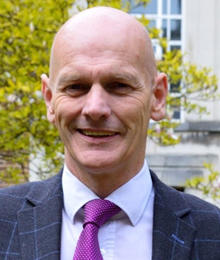An interview with Professor Christopher Elliott

Why does microbiology matter?
If you were to ask a group of microbiologists what the greatest threat to humans from micro-organisms is, my feeling is that the answer I would give would be a lot different from others. In fact, to many microbiologists, I’m probably not even one of them as I work mainly with natural toxins such as phycotoxins, cyanotoxins and mycotoxins, these very-small-molecular-weight compounds that require mass spectrometry to measure properly. However, my argument is that these toxins all come from microorganisms, algae and fungi of the micro varieties! They are all secondary metabolites and can cause severe issues in terms of human health and well-being.
It was highlighted in 2009 that mycotoxins and human disease are a largely ignored global health issue. Unfortunately, 10 years on, the case remains the same. Why is this? I suspect it’s because us in the developed world are largely protected from exposure to mycotoxins due to very stringent legislation and testing programmes. The same cannot be said for the developing world, and in particular Africa, where exposure to mycotoxins is enormous and causes many millions to suffer from ailments such as child stunting, immune suppression and multiple cancers.
Why does agriculture and food matter to microbiology?
Very recently I was part of a group led by the world’s leading mycotoxin researcher that published an article to say that between 60% and 80% of food crops are now contaminated with a range of mycotoxins. We believe this alarmingly high figure we believe is only getting worse due to climate change. When I look at the mycotoxin exposure data that is emerging from countries within sub-Saharan Africa, I can start to see the massive public health crisis that is present and will only get worse. So, my second and final argument, if not a plea, is that much more attention gets focused on fungi and their toxins that are causing so many human health issues in parts of the world that need the protection and support from the developed world.


